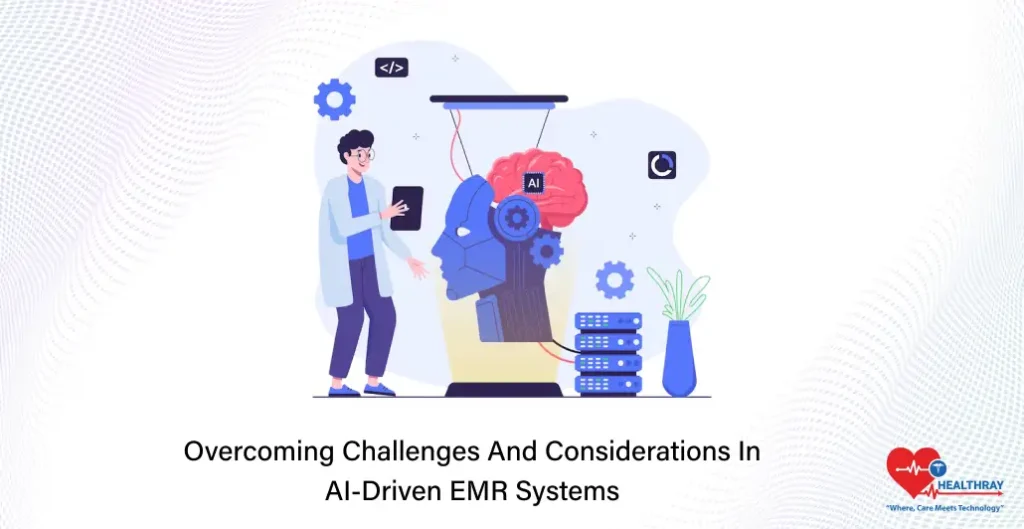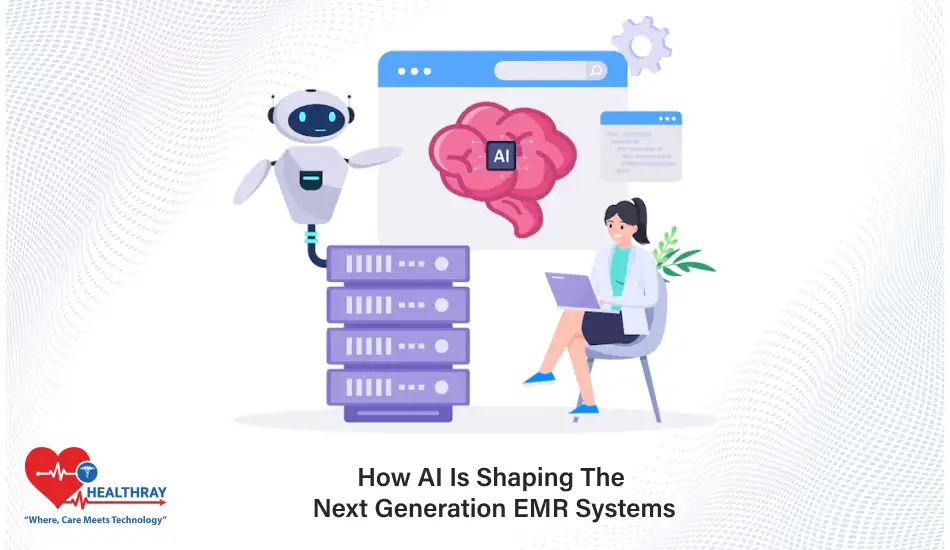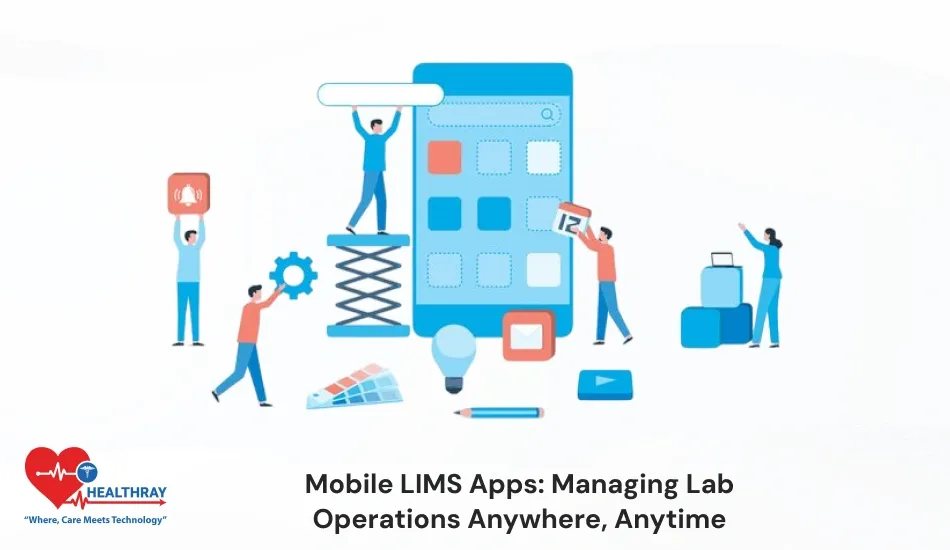Thus, EMR is about changing the face of patient data devices/medical records by AI technology-enhancing the range from smoother excision of clinical and complex routine procedures to finer accuracy in clinical decision making. It is a kind of development in the health care sector, which matters to EMR experts, health organizations, software developers, and health care management, more than convenience: better outcomes, streamlined processes, and safer management of data.
I will take you through the ways AI is changing EMR systems today-a really penetrating look into current benefits of AI, including improved clinical decisions, automated workflows, and increased security of medical data. You will gain an understanding of how AI is developing increasingly intelligent, efficient EMR systems that will meet the challenges presented by modern healthcare.
Enhancing Clinical Decision-Making with AI in EMR Systems

Data transformed into meaningful and actionable information is what AI is doing to revolutionize clinical decision making. This potential exists in the making using EMR systems gathering huge patient records and letting AI algorithms study these records to find unnoticed patterns that can save lives with earlier detection or individualized treatment plans.
For example: An AI-powered decision support tool could examine a patient’s history, symptoms, and laboratory results and then possibly suggest diagnoses or next steps. This is going to shift the focus of healthcare professionals from deciphering complicated data to spending time caring for their patients.
Furthermore, AI has the potential for detection of anomalies traditionally unnoticed. With AI, everything from predicting the odds of a chronic condition to signaling potential drug interaction will invariably have a safety net for clinical decisions.
This additional strength is no longer theoretical; reporting hospitals using AI-driven EMR systems have begun to collect improved effects. The tailored nature of healthcare delivery has also increased patient satisfaction with care, as it aligns the delivery with individual needs.
Optimizing Operational Workflows with AI in EMR Systems
Day-to-day healthcare operations are spent mostly on repetitive and mundane administrative tasks, which have left little time for healthcare professionals to devote to patient care. In what has become a huge boost toward improving the aforementioned problems, AI in EMR has revolutionized repetitive and laborious processes into fine tuning efficiencies in the entire system.
To illustrate, AI makes appointment scheduling much more efficient based on historical patient patterns and provider availability, which will minimize appointment conflicts and optimize resource use. Similar improvements can be drawn for administrative functions concerning billing and claims processing, where human interaction is minimized, thereby cutting down on errors, and saving time.
Another area where AI has shined is in management of patient records. In this case, NLP enables the translating and grouping of the notes given by physicians into data that will facilitate record entry and lessen load among healthcare providers. That is to say AI specializes in simplifying this documentation, which leaves room for the doctor’s and nurses’ encouragement to spend more time with their patients.
The need for optimizing operations doesn’t stop at that; inventory management also crosses frontiers. AI will give a prediction on supply levels based on historical data so that neither overstocking critical medical supplies can take place nor a constant supply of critical medical supplies runs out but enhances efficient utilization. This will reduce waste and improve allocation of resources.
The consequence is a health-care system running smoothly for the administrator, leaving him to focus on strategy and improvement while enabling health care providers to prioritize what really matters-most importantly, delivering quality care.
Ensuring Data Privacy and Security in AI-Driven EMR Systems
With deeper AI integration into EMR systems, data privacy and security remain pivotal. Healthcare organizations deal with sensitive patient information, and any breach could have serious repercussions. AI would not only help strengthen the use of data but would also apply exceptional means to secure it.
Essentially, the detection of anomalies is one of the greatest gifts AI renders. By analyzing network activities and access patterns, an AI system can be trained to detect unusual behaviors that may indicate a security breach. This enables an organization to prepare proactively against a potential threat before it escalates.
AI also protects data through encryption and access management. Role-based access control in an EMR system ensures certain types of patient information are visible only to authorized personnel, greatly reducing the probability of human error as a means of data leak.
Another area wherein AI offers assistance is compliance with regulatory frameworks such as HIPAA. Automated tools can inspect EMR Systems Software to determine compliance with the latest privacy standards. Reports could also be automatically produced by AI, leading administrators to spot loopholes in their security protocols and improve on them thereby.
But challenges still remain. AI implementation requires scrupulous testing to weed out vulnerabilities, while openness on how the data are being used must be given utmost priority by organizations. Finding a blend between innovation and ethically sound practice will help the organization in building trust with its patients.
Furnishing EMR systems with AI helps the healthcare organizations to keep patient data completely protected while using its power for better care outcomes.
Overcoming Challenges and Considerations in AI-Driven EMR Systems

Integrating AI into EMR software is transformative, but it has its own set of challenges. Understanding and solving these challenges could help better exploit AI potentials in healthcare.
Compatibility represents a huge hurdle. Many healthcare facilities use legacy EMR systems that were never built to support AI technologies. The upgrade or replacement of such systems may prove to be an expensive and lengthy undertaking, thus representing a real barrier, especially for smaller organizations.
Training and uptake could be equally challenging. Training is essential for optimal functioning of AI systems, and the house staff need to know how to put them to work. Resistance to change in staff could further hamper adoption, especially in a scenario where existing workflows are already very busy.
Then comes cost. Even when their long-term benefits are undeniable, the initial investment may be daunting. From procuring new software, through training of staff, to maintaining these systems these all can amount to quite a burden. Decision-makers must juxtapose these against potential improvements in efficiency and patient outcome.
Data quality is equally important. AI systems can yield results; however, good results require good input. If the patient records are not properly made, the predictions and recommendations may turn out to be unreliable. Assuring quality data input, on the other hand, is an endless process requiring sound systems and personnel training.
And other ethical issues regarding the use of patient-related data and transparency. Patients and providers must be aware of what data is being used and how. Without that trust, the adoption of AI-powered EMR systems may be hampered.
Organizations prepared to deal with such challenges will be seriously positioned to achieve excellent results in their quest to provide high-quality care. Thoughtful implementation, strategic investments, and continuous training in pursuing these challenges constitute the golden key.
Future Trends: What’s Next for AI in EMR Systems?

AI integration into EMR systems is only at the beginning stages. Trends will develop with the evolution of technology to redefine health organizations using data to create better care, smooth workflows, and forge further ahead into innovation.
Exciting so far, predictive and prescriptive technologies are gaining ground. These technologies will help in making the healthcare industry predict what could happen to a patient and recommend what should be done. For instance, it would be timely intervention in an at-risk patient if the condition is recognized before deterioration, hence bringing forth a favorable health outcome.
Conversational AI is garnering much attention. Advanced natural language processing (NLP) will have a role to play in making virtual assistants key players in EMRs. It could help physicians with information retrieval, record updates, and even patient interaction-all looked after by simple voice commands.
Interoperability is an exploding trend. Further, a very crucial requirement is an AI-based bridging mechanism. This would assist in removing the barriers, enabling perfect data exchange, and bringing collaboration through providers. Hopefully, then, this would get towards providing a unified health and wellness universe that helps with patients but also the practices.
In addition, AI will innovate the area of patient engagement. Personalized health recommendations, symptom trackers, and AI chatbots are already creating empowered patients who can take charge of their health. These tools can provide even more holistic care experiences in conjunction with EMR systems.
More focus on explainable AI is gaining traction. Trust and accountability, which are much required in healthcare, will now rest on transparent and comprehensible decisions made by AI systems.
These trends show how AI would play an increasingly prominent role in EMR systems, representing transformative opportunities for the healthcare industry. Now, if the organizations can stay one step ahead of the game, they can lead the way in setting the stage for a smarter and more effective delivery of care.
Conclusion
AI is transforming what is possible within healthcare, and its integration into EMR systems is a quantum leap. From enhancing clinical decision support to optimizing workflows and securing data, AI is building yet another wave of smarter systems that are beneficial to both providers and patients.
Overcoming obstacles such as the exorbitant cost of integration, data quality, and ethical issues will need to be surmounted if the full potential of AI in the Health Management System is to be realized. This is an ongoing journey requiring an intelligent and thoughtful implementation, a collaborative approach, and a commitment to continuous learning.
Those who embrace innovation today will build tomorrow’s healthcare. For clinicians, software developers, EMR vendors, and hospital administrators, now is the time to educate themselves about AI capabilities and invest in systems that deliver efficiency improvement, enhance care delivery, and instill trust in patients.
Keep the organization informed and proactive, and it will lead the way in making a new era of healthcare powered by AI and advanced EMR systems.




